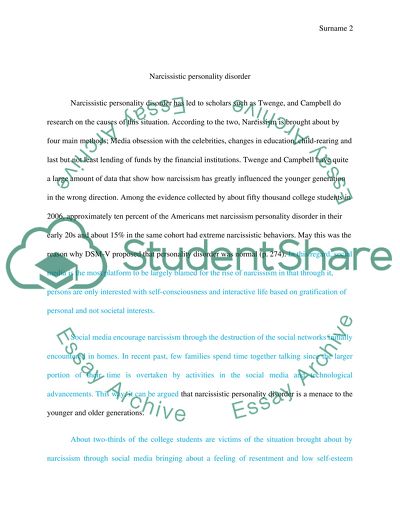Cite this document
(“Social Media encourages Narcissism, leading society to a word with no Research Paper”, n.d.)
Retrieved from https://studentshare.org/english/1665417-social-media-encourages-narcissism-leading-society-to-a-word-with-no-personal-interaction
Retrieved from https://studentshare.org/english/1665417-social-media-encourages-narcissism-leading-society-to-a-word-with-no-personal-interaction
(Social Media Encourages Narcissism, Leading Society to a Word With No Research Paper)
https://studentshare.org/english/1665417-social-media-encourages-narcissism-leading-society-to-a-word-with-no-personal-interaction.
https://studentshare.org/english/1665417-social-media-encourages-narcissism-leading-society-to-a-word-with-no-personal-interaction.
“Social Media Encourages Narcissism, Leading Society to a Word With No Research Paper”, n.d. https://studentshare.org/english/1665417-social-media-encourages-narcissism-leading-society-to-a-word-with-no-personal-interaction.


